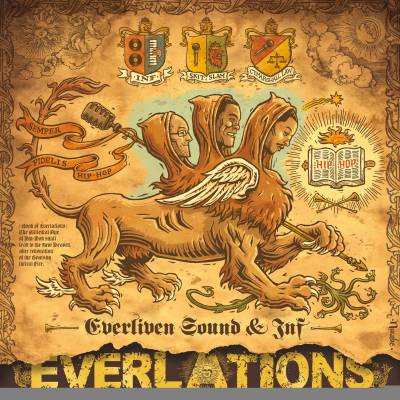The following are actual quotes that I have found on various online chat boards which I have modified to prove a specific point. They also reflect a common thought process I find when speaking with people about politics in the real world:
"Democracy (generally with a paternal figurehead at the helm) is no more or less than a means to render a populace into a bunch of ineffectual teenagers."
"Without a doubt democracy is evil, maybe not as much as the theoretical democracy everyone raves about, but it is purely evil."
"Finally someone else is showing an interest in the fact that there are no free Americans and we are turning into a fascist democratic country."
Beyond a handful of right-wing extremists who worship Ayn Rand and Ludwig von Mises, most people would consider these statements to be absurd, and for good reason. But if you replace the words "democracy" and "democratic" from each of these statements with the words "communism" or "socialism" these statements become justified, right?
Not exactly.
It is not my intention to compare democracy with either socialism or communism, but rather to show that these terms are commonly thrown about in conversation on a daily basis in a very irresponsible fashion to attack political ideologies and practices that we disagree with. We are, in effect, taking meaningful economic terms and relegating them to the status of pejoratives equivalent in their meanings to George Carlin's seven dirty words. Doing this makes political discourse extremely difficult and horrendously inefficient. Not only does it prevent those who actually understand these terms from effectively communicating with those who do not, but it also clouds discussion between likeminded individuals who lack any proper understanding of these terms. By dissecting these three quotes above we find that in the first, communism/socialism is equated to a welfare state, in the second it is vaguely categorized as evil, and in the third it is held, in conjunction with fascism, as antithetical to freedom. Not only are all three of these definitions very vague, but they are also largely contradictory. If two parties with a common goal cannot come to an agreement as to the nature of the enemy with which they are at war, how do they expect to win the battle against it? In order to have truly meaningful political discourse we need to educate ourselves and those around us of what these terms and others we use regularly and do not fully understand mean from both a theoretical and practical assessment of these ideologies and their histories.
Unfortunately, as with most political terms, traditional dictionary definitions of each are inadequate. The dictionary at reference.com defines socialism as "a theory or system of social organization that advocates the vesting of the ownership and control of the means of production and distribution, of capital, land, etc., in the community as a whole" and communism as "a theory or system of social organization based on the holding of all property in common, actual ownership being ascribed to the community as a whole or to the state." [1][2] While these do reflect a narrow perspective of what these terms mean, there are a broad variety of socialist and communist ideologies, many of which have existed for close to or in excess of 200 years, that do not fit into these definitions. Mutualism, for example, was an economic theory created by Pierre-Joseph Proudhon, a self-described socialist whose writings predate those of Karl Marx and Freidrich Engels, which seeks "a society in which the economy is organized around free market exchange between producers, and production is carried out mainly by self-employed artisans and farmers, small producers' cooperatives, worker-controlled large enterprises, and consumers' cooperatives." [3]
So if the dictionary definitions of socialism and communism are incorrect, what are the correct definitions of these terms? Though most official definitions of socialism point to some form of common ownership, the most concise definition i have found that encompasses all of its various forms is "workers' control over the means of production". This means that whether the capital is controlled by one individual who owns his business and does his own labor, or by a large group of people such as a community who control labor directly and equally, it is socialism. Of the various socialist ideologies, communism is the most well known. It is defined as a form of socialism that includes remuneration based on the guiding principle "from each according to his ability, to each according to his need".
By these definitions, equating them with fascism and a welfare state are laughable. But again, here is a term being used as a pejorative with little understanding of what the term means. The following quote from Benito Mussolini may give us a sufficient definition:
"The corporate State considers that private enterprise in the sphere of production is the most effective and usefu [sic] [typo-should be: useful] instrument in the interest of the nation. In view of the fact that private organisation of production is a function of national concern, the organiser of the enterprise is responsible to the State for the direction given to production.
State intervention in economic production arises only when private initiative is lacking or insufficient, or when the political interests of the State are involved. This intervention may take the form of control, assistance or direct management." [4]
So as per Mussolini's definition, fascism is a system in which private entities control the means of production in a market system with limited government interference in the economy. Upon researching the definition of capitalism we find that fascism is strikingly similar. In the case of capitalism we find that, for once, the dictionary definition actually suffices:
"an economic system in which investment in and ownership of the means of production, distribution, and exchange of wealth is made and maintained chiefly by private individuals or corporations, especially as contrasted to cooperatively or state-owned means of wealth." [5]
So, in essence, the above definition could equate to private ownership of the means of production. As such, one could argue that fascism is a form of capitalism in which there is minimal state involvement. Additionally, one could extrapolate that the U.S. economy could be accurately described as fascist, and therefore capitalist. However, when one evaluates whether or not the U.S. economy is socialist or communist, we see that it is as far from either of these as possible. The U.S. economy is marked by high levels of privatization and very little workers' control.
Even more interestingly, if we look at the common examples that are brought up when people discuss socialism and communism, none of them resemble workers' control either. Here's an in depth analysis of Communism in the U.S.S.R. by Emma Goldman:
"Industrial planning and all the processes of production and distribution are in the hands of the central government. Supreme Economic Council is subject only to the authority of the Communist Party. It is entirely independent of the will or wishes of the people comprising the Union of Socialist Soviet Republics. Its work is directed by the pollicies and decisions of the Kremlin. This explains why Soviet Russia exported vast amounts of wheat and other grain while wide regions in the south and southeast of Russia were stricken with famine, so that more than two million of its people died of starvation (1932-1933)." [6]
So it seems this leaves us with no existing examples of socialism and communism existing in reality and only theoretical incantations as well as the assumption that, in practice, it automatically leads to tyranny and despotism. But this assumption, too, is false. though they are less known, there have been examples of both large and small scale socialism existing in the world, some of which continue to exist to this day. The most glaring example is the Spanish Revolution. During the Spanish Civil War of 1936, when Francisco Franco was focusing all of his efforts on militarily fending off the State Communists, the people of Spain, as well as immigrants from elsewhere in the world, took over approximately 70-80% of the country on a completely egalitarian platform. In rural areas money was abolished and production and consumption was handled on the basis of mutual aid. in more urban areas, such as Barcelona, various types of currency were created and used in that specific region. Here, George Orwell discusses the collectivization (workplace democritization) of industry throughout Spain:
"The country was in a transitional state that was capable either of developing in the direction of Socialism or of reverting to an ordinary capitalist republic. The peasants had most of the land, and they were likely to keep it, unless Franco won; all large industries had been collectivized, but whether they remained collectivized, or whether capitalism was reintroduced, would depend finally upon which group gained control." [7]
Some other important examples, both past and present, include the Ukrainian Free Territory, the Israeli Kibbutzim, and Freetown Christiania (which still exists, in its present form, as a socialist community).
But nonetheless, it is not my goal with this article to persuade people to any particular line of economic or political thought. It is merely my goal to convince others to choose their wording more wisely when partaking in political discussion as it will make their conversations more fruitful. If in writing this I convince just one person to be a bit more conscientious about their choice of words, then I will be content.
1. "socialism." The American Heritage® New Dictionary of Cultural Literacy, Third Edition. Houghton Mifflin Company, 2005. 19 Feb. 2012.
http://dictionary.reference.com/browse/socialism 2. "communism." Online Etymology Dictionary. Douglas Harper, Historian. 19 Feb. 2012.
http://dictionary.reference.com/browse/communism 3. Kevin Carson. Introduction. Mutualist. Web. 3 Jan. 2003.
http://www.mutualist.org/index.html 4. Benito Mussolini. 1935. Fascism: Doctrine and Institutions. Rome: 'Ardita' Publishers. 135-136. Web. 2010
http://www.publiceye.org/fascist/corporatism.html 5. "capitalism." Online Etymology Dictionary. Douglas Harper, Historian. 19 Feb. 2012.
http://dictionary.reference.com/browse/capitalism 6. Emma Goldman. Red Emma Speaks: An Emma Goldman Reader, third edition. Alix Kates Shulman. American Mercury, volume XXXIV. April 1935. Web.
http://www.hartford-hwp.com/archives/63/227.html 7. George Orwell. Homage to Catalonia. 1938. Web. 2003.
http://www.george-orwell.org/Homage_to_Catalonia/4.html 


















